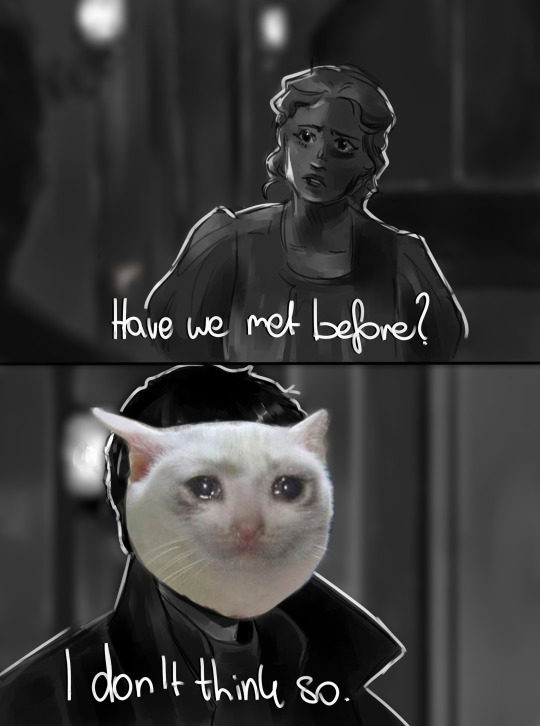Don't wanna be here? Send us removal request.
Text
I LOVE THIS!!!11
dark × 1899 parallels
// contains spoilers
233 notes
·
View notes
Text
To the 1899 family,
As you may have heard, Netflix has decided not to renew 1899 for a second and third season at this time. The situation has hit all of us hard, from brand-new fans of Bo and Jantje, to fans who have experienced their work from Dark and beyond. Although 75,000 people have lent their voice petitioning Netflix to renew the show, the future of 1899 remains uncertain.
To show our support, we would like to bring the wonderful and immensely talented 1899 community together to combine all of our positive energy, love, and support for Bo, Jantje, and the cast and crew of 1899 into a fan book filled with letters, art, and other memories from the past years, which we plan to deliver to them in person.
The book will be printed in A3 size, and we will be accepting the following fan-made submissions: letters to Bo and Jantje, 1899 and Dark artworks, videos, all of which will be digitally compiled by our team.
We will be accepting submissions for the fan book via email starting now until March 1, 2023, 8pm CET. Please send your submissions to [email protected], alongside the following information: name that you would like to be credited as, country, and social media handle (optional).
Remember: everything will be okay in the end. If it’s not okay, it’s not the end.
Love from Germany and around the world
🜃
Fanbook for Bo and Jantje: Submission Guide
Currently we are accepting written letters, art, and video submissions. Below you will find guidelines for what can be submitted under each category, and what will not be included in the fan book.
Remember, this book will be printed and sent to Bo and Jantje in person. Please be aware that your contribution(s) may be presented or visible to the public, and thus by submitting your entry you are giving consent for the usage of your art, videos, and letters to be presented in a public context.
🜃
Keep reading
335 notes
·
View notes
Text
the 1899 wikipedia page is petty & passive agressive as hell and im living for it

668 notes
·
View notes
Photo

Me calmly accepting the news of 1899′s cancellation.
24 notes
·
View notes
Text
Unsubscribed from Netflix immediately upon hearing of 1899′s cancelation. Strongly encourage anyone who is raging over this decision to do the same. We can sign petitions and vent on social media all we want, but, in the end, we vote with our wallets. Let them know how disappointed you are.
44 notes
·
View notes
Text
I made it almost all the way through Sandman without shipping, but then Calliope dropped, and well.
Me when The Sandman came out: Ok, I’m gonna enjoy this show, it’s an interesting story and I’m familiar with the comics. There will be no shipping so it will all go smoothly.
*Episode 3 happens and Morpheus and Johanna interact
Also me: Well, fuck
Me, excited about 1899: thinking this is gonna be a very serious show and there will be no place for shipping.
*10 minutes into episode one: “Haben sie sich verlaufen?”
Also me:

70 notes
·
View notes
Text
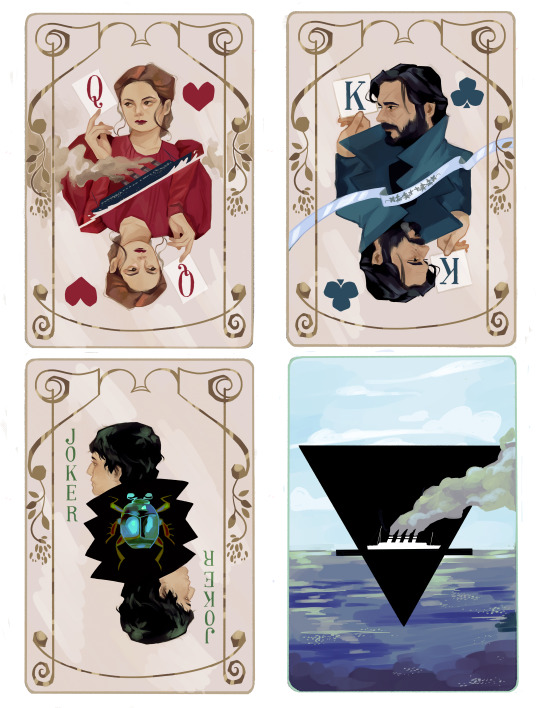
This is not a dream
2K notes
·
View notes
Photo
Captain Larsen manhandling women, children and poor little meow meows.


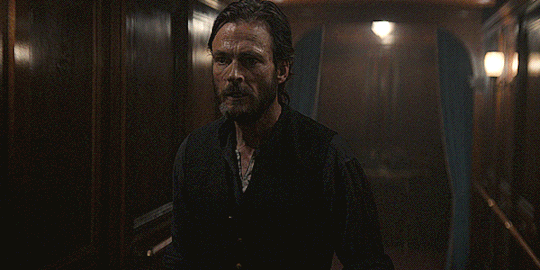
252 notes
·
View notes
Text
Hey I just met you - And this is crazy!

But I’m your husband,
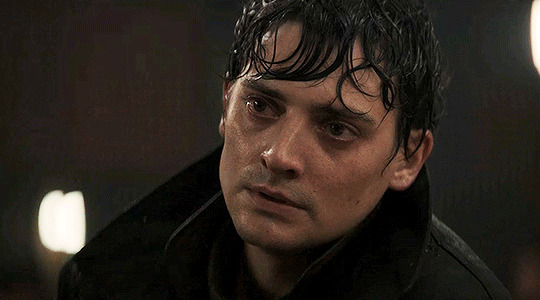
And that’s our baby!
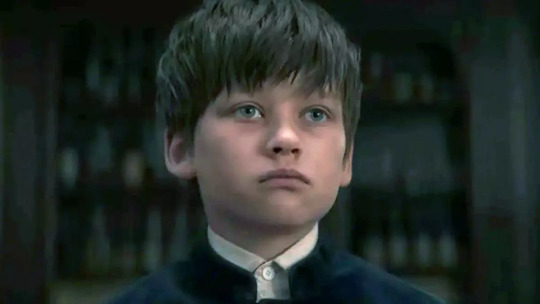
272 notes
·
View notes
Note
Hi! Remember that theory I sent you about 1899 last year? 😎
Omfg, Anon, thank you for reminding me and well done! If you have any predictions for season 2, my inbox is open :D. Here's what Anon wrote on May 17th 2021:

8 notes
·
View notes
Text
He’s struggling to win Maura’s trust, it wouldn’t exactly reflect well on him if he straight up murdered the guy she does trust right in front of her eyes. But also, I think Daniel just isn’t the type of bloke who does harm for no reason.
Daniel could've turned Eyk off, he can do that(or can he) he made a point of moving him somewhere else. Why?
30 notes
·
View notes
Text
The concept is:
redhead smartass girlboss, her brunette traumatized malewife and they investigate mysteries together




249 notes
·
View notes
Text
Thank you for this comprehensive analysis of the show’s themes and the historical context, it’s very much appreciated!
European History and Sensibilities in 1899 season 1
Please forgive the length of this post -- I know I'm rambling, but I am so taken by the depth and brilliance of this show. For context, I'm an Indian immigrant to the United States, who studied American and European history and literature in the U.S. As you might imagine, I have many, many thoughts about 19th century European history and ideologies evident in 1899.
One of the really fascinating things to me about 1899 is how European it is -- obviously in terms of the nationalities of the actors and the characters, but also in terms of one of the show's leitmotifs: you cannot run from your station in life.
There were populist revolutions across Europe in 1848. They broadly failed, and the monarchs won. So in 1899, Europe was still a land of kaisers and czars (both words that come from Caesar, immediately locating 19th century Europe within a two-thousand year history of inherited status).
This is in direct opposition to the American myth, right? The idea that you can come from nothing and become the king of the world. That's a story Americans love to tell and hear, and when we Americans talk about European immigration in the 19th century, that's the way we tell the story. "All men are created equal," we say. This is where you're supposed to come if you're the "poor huddled masses yearning to breathe free." New York, specifically, is where Lady Liberty holds her lamp beside the golden door. (Lady Liberty is European, of course -- but she is French. France had a successful republican revolution in 1791, relapsed with a series of emperors, but by 1899 was a republic again.)
That's why the Kerberos is bound for New York, and not Buenos Aires or Sydney or Bombay. The American myth calls to all our friends on the Kerberos. The show begins with an American poet's words. Olek repeatedly looks at an image of the Statue of Liberty. Virginia explicitly says, "Everyone is running from something." They all hope to escape their pasts and begin anew in America, specifically, because of America's foundational mythos. Maura hopes to become a woman doctor. Tove hopes to lead a normal life with her baby and siblings. Iben hopes to establish a church rather than toiling in the fields.
But they never make it to New York. They've tried "dozens of times," Daniel tells Maura, but the ship never reaches its destination. Because New York isn't real. These European have no hope, ever, of successfully becoming the masks they wear. Angel says exactly this to Ramiro: "You cannot change the nature of things." Later on, it seems that he has had a change of heart, but his realization comes too late, and he's never able to act on his epiphany and become a better person.
Consider the stories of Ling Yi, Lucien, and Franz.
In the British colony of Hong Kong, Ling Yi tries to steal her way into a better life. The results are disastrous: she loses her best friend. Later, she loses her mother. Even though she acknowledges to her mother that she's not entitled to have dreams, she begins a dreamy relationship with Olek -- and then loses the boy she loves. By the end, she's lost everyone she cares about. There is nothing left of the better life she tried to steal from Mei Mei. The ship isn't real. The ocean isn't real. Even her beautiful stolen kimono is gone. The only familiar presence left in her life, the only person with whom she can communicate, is her pimp.
Like Ling Yi, Lucien tried to steal an identity. He returned to Paris from French Algeria trying to live out a dead man's life, and learned that the universe would not allow it. He accepts his death as soon as Eyk announces that he's heading for the Prometheus, and later tells Clemence, "I didn't get what I wanted. I got what I deserved." He understands his fate as almost a karmic balance. He stole a dead man's life, and now he has to die, too.
And then there's Franz. He's the "American" on board, in the sense that he does what a prototypical American would appreciate. He's clearly of a lower-class background and builds solidarity with the working class. He attempts to democratize the ship by empowering the underclass -- giving them arms. And when he feels that the ship's leader is not doing a good job, he seizes power to redirect the ship to its original course. It could almost be in the U.S. Declaration of Independence, which starts by justifying the American Revolution. His actions are so very American that he could almost be heroic.
Of course, the name Franz is related to France. France gave critical support to America in its revolution. Then, as I said above, it had its own bloody revolution and deposed its king. By 1899, France was a republic. So maybe it's more accurate to say that Franz is the French revolutionary, not the American.
But either way, in 1899, he's not a hero. His coup fails. Nobody shows him any respect at all, from haughty first mate Sebastian, to dignified first-class passenger Maura, right down to humble stoker Olek. The crew that was initially on his side turns against him (before he's deactivated, Wilhelm admits that Eyk had been right all along). Even the third-class passengers Franz empowered lose respect for him by the end, when he can't explain the mysterious Calling.
So, in the second half of the show, Franz returns to his proper place: under Eyk's command. (Just like France returned to imperial rule under Napoleon, even after its revolution.) Eyk is above deck, seeking philosophical enlightenment, exploring the nature of the mystery with Maura. And Franz is lower than ever, in the lowest part of the ship, performing manual labor: shoveling coal. When the storm hits, he doesn't even know until someone comes down to tell him.
In contrast, consider Olek. He never, ever subverts his station in life. Even when he's frustrated by Eyk, he does everything the captain requests. He treats everyone with deference, not even meeting their eyes, because he understands that he's lowest ranked. Even the relationships he forges -- the friendship with stowaway Jerome and relationship with prostitute Ling Yi -- are with people in his own class/rank.
Notably, Olek is Polish. In 1899, Poland hadn't existed for over 100 years; it had been divided between the Russian Empire, the Austro-Hungarians, and Prussia (later the German Empire). Olek is literally nobody, from no land.
And for knowing his place in life, he is rewarded by the universe: he ends up acting in stead of the captain, steering the ship. (Brilliantly, Olek's name comes from Alexander, as in Alexander the Great. It may not be immediately apparent to people who dismiss him as a "Polack," but Olek has rich history and leadership in his name.)
And finally, there's Eyk himself. His old-fashioned name also means "ruler," from the word for oak trees under which village heads issued their rulings. And he is the definite ruler of the ship. He is imperious and stern to start, and Maura immediately recognizes from the way that he carries himself that he is the ship's captain. He knows Morse code, and how to read naval maps, and the depth of the sea. He also knows how to read his crew and order them around.
Eyk exhibits a magnetic charisma, which works on everyone. Jerome and Ramiro, who would rather have kept their heads down and stayed out of the spotlight, end up risking their lives for him. Sebastian apologizes to him before deactivating him. Even Daniel -- for whom Eyk is a romantic rival -- helps Eyk, agrees with him publicly, and eventually just moves him elsewhere rather than deactivating him.
But as events get stranger, Eyk's behavior becomes erratic. He drinks heavily on the job. He treats officers, crew, and passengers poorly. He makes an imperious decision against the wishes of every single person on board. George III lost America for the same thing. Julius Caesar died for that, and so did Louis XVI.
But the mutiny against Eyk fails. Tove, who points a rifle at Eyk and informs him that they're turning the ship around, is also the first person to defect from the mutineers. She says to him, "Du bist der Kapitan." After the Calling, everyone again acknowledges Eyk as the captain. When the crisis of the storm begins, it's Eyk they seek first, before turning to Sebastian and Franz.
The show presents this as the correct order of things. Eyk is sympathetic, intelligent, and noble, in every sense of the word. We, the audience, love him for it. Even when we sympathize with Franz, we never agree with him and turn against Eyk.
So, the first season reifies the 1899 European idea that one ought to act in accordance with one's class status. Escaping one's station in life is impossible, and attempting to do so always leads to disaster.
(Here I would be remiss not to mention the relationship to Hinduism and Buddhism. The idea that everyone's life circumstances are a reflection of their actions in their past lives, and therefore should not be avoided or changed? That's Hinduism. The idea that the universe is an illusion? It's called maya, and it's in Hinduism and Buddhism. The idea that attachment to the illusory things of maya necessarily brings suffering, that suffering distracts you from your true self as part of atman and your goal of achieving moksha -- of being blown out of existence like a candle (nirvana) -- of achieving liberation from the cycle of birth, death, and rebirth: all of this is in Hinduism and Buddhism. It's exactly what Daniel tries to tell Maura.
Europeans in the 19th century were familiar with these concepts. Knowledge of Hinduism and Buddhism was quite fashionable not only in Britain, but across the continent, and it remained so into the 20th century. See, e.g., Hermann Hesse's 1927 German novel Siddhartha about the Buddha, or this Polish translation of the Sanskrit Ramayana from 1937.)
Of course, European history didn't end in 1899. Major shifts were on the horizon; a century of war was about to begin, reshaping Europe's map several times. European nations bit into one another, sometimes spitting each other out, sometimes swallowing each other whole.
The British empire continued to lose its global power. World War I ended Eyk's German Empire and established the Weimar Republic, setting the stage for the Third Reich. The 1917 Revolution ended Imperial Russia and established the Soviet Union. The Treaty of Paris reestablished Olek's Poland. Civil war raged in Angel's Spain. World War II began in 1937 on the Sino-Japanese front, and Ling Yi's Hong Kong was occupied by Japan. Olek's Poland was occupied by Germany, as was Clemence, Lucien, and Jerome's France.
And then the Cold War raged. Europe was split in two. America became a superpower and spread its sensibilities across war-ravaged Western Europe, while the Soviet Union did the same in the East. Eyk's Germany was itself split.
Until, finally, came the mostly peaceful Revolutions of 1989 (the same numerals as 1899!), fulfilling the populist promise of the 1848 revolutions. Round Table Talks -- beginning in Olek's Poland -- spread capitalist democracy across Eastern Europe. The Berlin Wall came down later the same year in Eyk's Germany.
(Jantje and Bo are German, too, of course. Their age and vantage point in Central Europe means they have a wonderful perspective on late 20th century European history.)
The Soviet Union collapsed in 1991, leaving America as the sole world power. Obviously, Europe is not America. To this day, America is a very libertarian country, ruled by a worship of individualism and the belief that riches and success are only a reinvention away. European countries are not ruled by this same fundamental ideology.
But in the 20th century, we Americans exported (read: forced) some of ourselves across the world, including in Europe, very often in evil ways. A lot of it was horrible and self-interested. We ruined lives. We ruined generations. We ruined entire nations.
But not all of it was bad. (Black Americans invented jazz and rock and roll, after all, and it's the latter genre that plays at the end of every episode.) And one of the things we exported was our foundational myth -- our belief -- now widely accepted in many parts of the world, including modern Europe: that it is inherently right and correct that people should chart their own destinies rather than being forced into roles determined at birth.
(Not to suggest that self-determination is uniquely American. Other cultures have this belief indigenously, of course! I only mean that we exported our own version.)
At the end of the first season, we see the same people that we've gotten to know, but in a new historical context. They no longer believe that they are in 1899; now it seems they're in 2099. They're not exactly in America, but they are in the territory that America claimed to have won spiritually in 1969, in its space race with the Soviet Union. (Of course, we now acknowledge space as a place for all humans, not for any race or nationality. That kind of unity is reflected in post-WWII organizations like the United Nations...and the European Union.)
And so I wonder if the same leitmotif will play in the next step of these characters' journey, or if the next season will reflect Europe's 20th century: changing social roles. Democratization. Mass murder and genocide. Waning empires and anti-immigration sentiments. Homophobia, transphobia, sexism, and gender equality and increased LGBTQ+ rights. Socialism and austerity.
I really hope the next season embraces the next chapter in Europe's history. If so, it promises to be a very interesting season, marked with sharp internal and external conflicts and contradictions. Because, to borrow a phrase from the American poet Walt Whitman, Europe is large, it contains multitudes.
133 notes
·
View notes
Text
Please renew 1899. Please renew 1899.Please renew 1899. Please renew 1899.Please renew 1899. Please renew 1899.Please renew 1899. Please renew 1899.Please renew 1899. Please renew 1899.Please renew 1899. Please renew 1899.Please renew 1899. Please renew 1899.Please renew 1899. Please renew 1899.Please renew 1899. Please renew 1899.Please renew 1899. Please renew 1899.Please renew 1899. Please renew 1899.Please renew 1899. Please renew 1899.Please renew 1899. Please renew 1899.Please renew 1899. Please renew 1899.Please renew 1899. Please renew 1899.Please renew 1899. Please renew 1899.Please renew 1899. Please renew 1899.Please renew 1899. Please renew 1899.Please renew 1899. Please renew 1899.Please renew 1899. Please renew 1899.Please renew 1899. Please renew 1899.Please renew 1899. Please renew 1899.Please renew 1899. Please renew 1899.Please renew 1899. Please renew 1899.Please renew 1899. Please renew 1899.Please renew 1899. Please renew 1899.Please renew 1899. Please renew 1899.Please renew 1899. Please renew 1899.Please renew 1899. Please renew 1899.Please renew 1899. Please renew 1899.Please renew 1899. Please renew 1899.Please renew 1899. Please renew 1899.Please renew 1899. Please renew 1899.Please renew 1899. Please renew 1899.Please renew 1899. Please renew 1899.Please renew 1899. Please renew 1899.Please renew 1899. Please renew 1899.Please renew 1899. Please renew 1899.Please renew 1899. Please renew 1899.Please renew 1899. Please renew 1899.Please renew 1899. Please renew 1899.Please renew 1899. Please renew 1899.
115 notes
·
View notes
Text
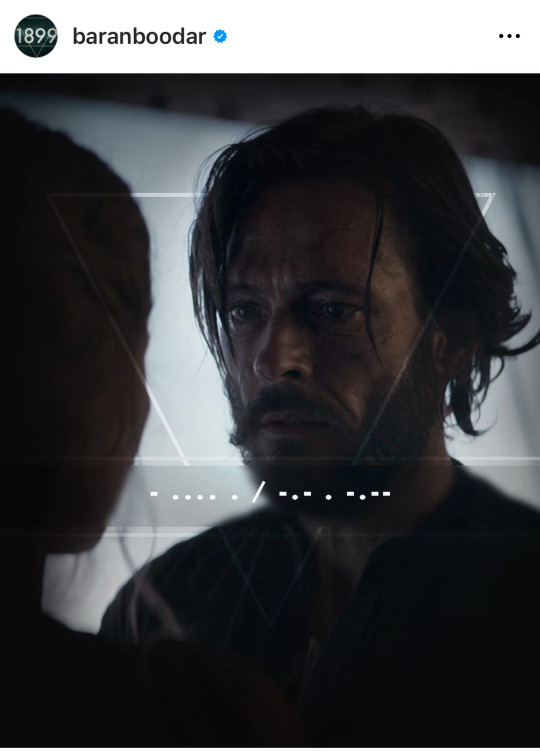
There is simply not enough discussion about the fact that Baran Bo Odar straight up posted an image of Eyk staring into Maura's eyes superimposed with "THE KEY" in Morse code.
349 notes
·
View notes
